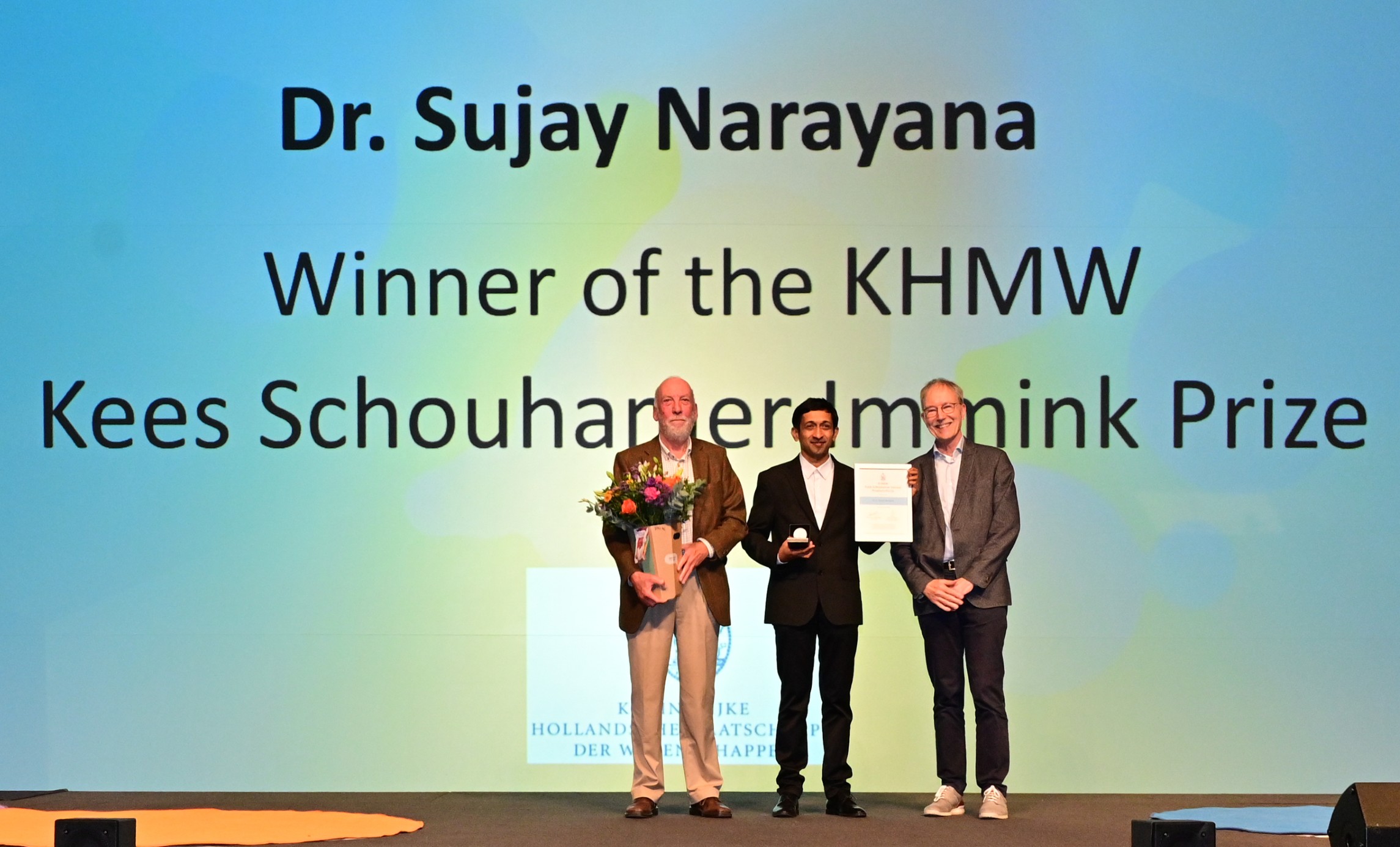Imagine a world with global internet coverage. You could check your socials on mountains, in deserts or on the middle of the ocean. The internet not only serves smartphones, but also sensors, detectors, cameras, cars and drones – you name it. We’re describing a truly global internet of things (IoT). TU Delft alumnus Dr. Sujay Narayana argues that such a network will only be possible with hundreds or even thousands of mini satellites that communicate directly with devices on Earth.
The KHMW awarded Dr Narayana’s PhD thesis‘ titled ‘Space Internet of Things’ with the bi-annual Kees Schouhamer Immink Prize for technical computer science and telecommunications. The ceremony took place on 11 April 2024 in the Jaarbeurs, Utrecht during the NWO ICT.OPEN event.
Such minisatellites face a number of challenges, all having to do with the limited electrical power. Narayana managed to tackle three of these. He developed:
- A radio technique that allows low-power, long range communication
- A low-power space-qualified GPS receiver that saves up to 96 % compared to state-of-the-art GPS receivers
- An independent energy efficient system called Chirper that checks vital signs of the satellite and transmits these to ground stations independently.
Dr Narayana did his remarkable PhD research at the Faculty of Electrical Engineering and Mathematics (EEMCS) of the TU Delft under supervision of Professor Koen Langendoen and Dr Ranga Rao Venkatesha Prasad.



Comments are closed.